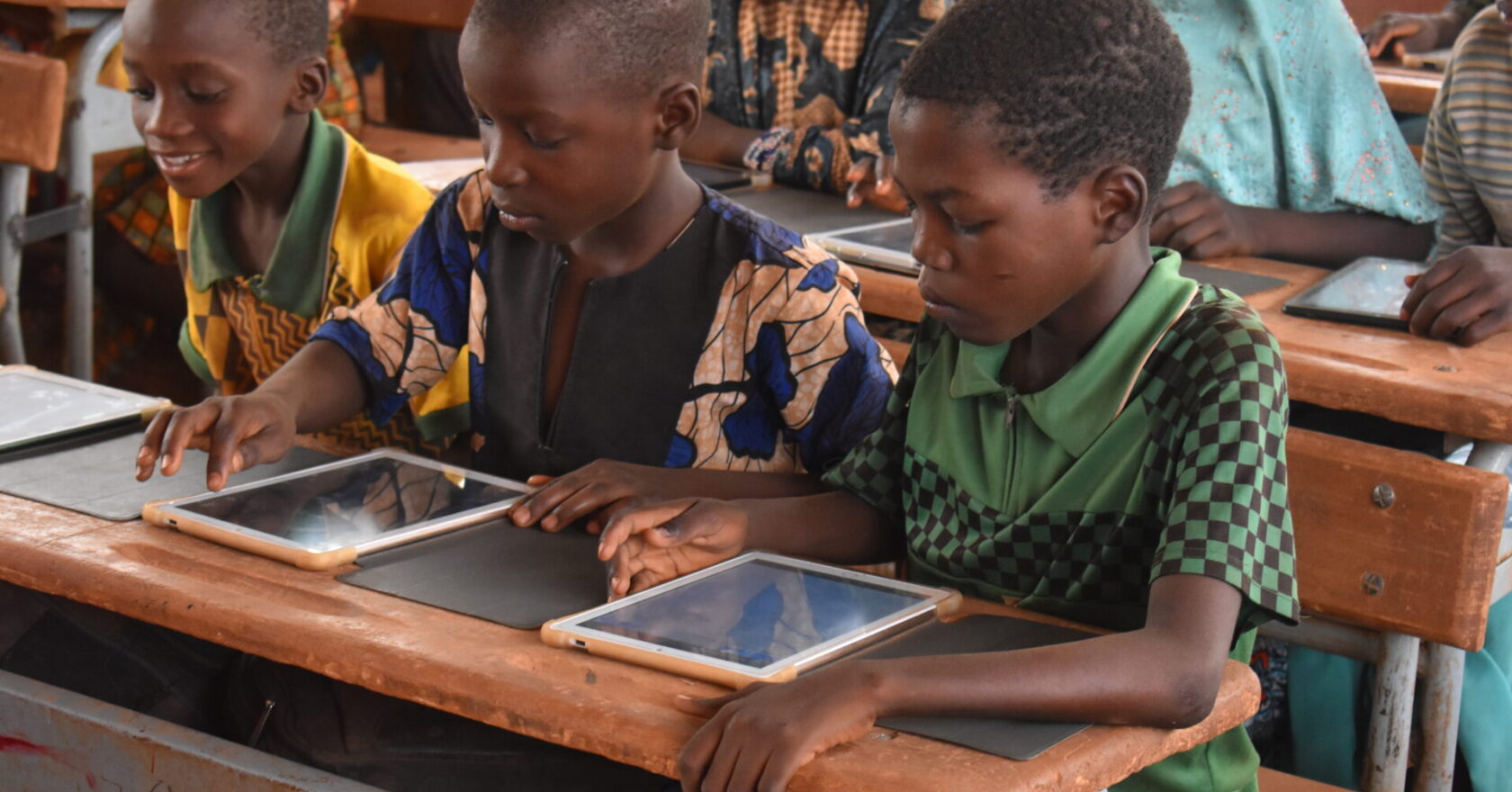This project reaches nearly 300 children per year, initially excluded from the education system. It uses the CredoEduc app to provide interactive lesson summaries and tailored exercises, enabling learners to progress effectively. For the 2024-2025 period, 290 tablets were distributed to facilitators at 10 centres for the benefit of 277 learners.
Over the three years of the project, 331 tablets will serve nearly 1,000 children, with a non-functionality rate of only 13.29%, which divides the initial cost of 110,000 XOF per tablet by three, bringing it down to around 36,000 XOF per year, and makes it half the price of subsidised paper textbooks, which cost an average of 72,000 XOF for three years covering two textbooks per subject.
Integrating into the formal system
At the end of the final assessments, learners are directed to primary grade 4 or 3, with convincing results for 2024-2025 where, out of 283 enrolled, 269 completed their training and validated their school year, enabling 100% to be integrated into the formal system (99.22% in Primary 4 and 0.78% in primary 3), for a completion rate of 95%.
Training parents
In addition, the tablets include self-guided tutorials to train parents despite the context of insecurity, as evidenced by a sample of seven parents interviewed, four of whom have launched income-generating activities (IGAs)/ For example: the manufacture of liquid soap by three mothers, the production of bar soap by another, and poultry farming by two of them, some of whom combine several IGAs. This has already improved their living conditions by facilitating access to essential products such as soap or by allowing them to quickly sell a rooster to cover urgent expenses. Finally, the tablets include awareness videos on how to behave in the event of attacks, hygiene and health measures, thereby strengthening the overall resilience of the community.
